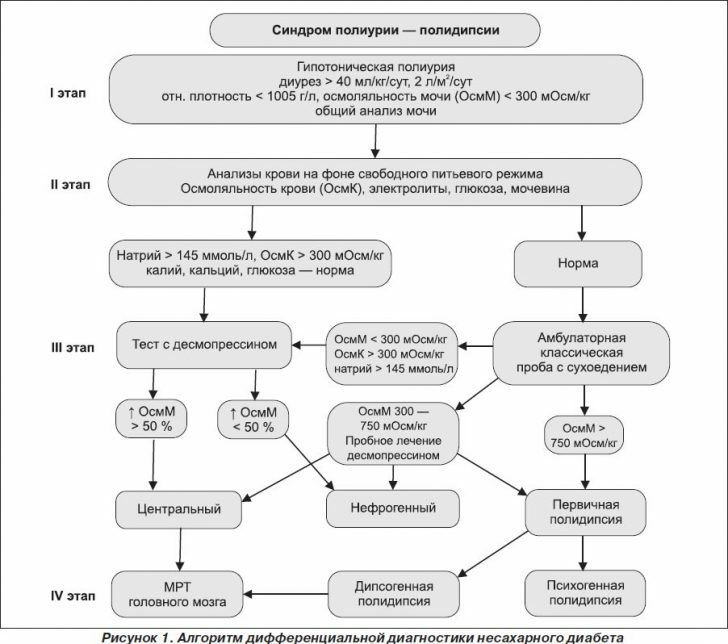Vitamins for the treatment of diabetes mellitus
 Statistical data on the prevalence of diabetes mellitus all over the world, and in Russia it is disappointing: according to official data about 2 million people with diabetes are registered in our country, in fact, it is believed that 8% of Russians suffer from diabetes. In economically developed countries, such a diagnosis as diabetes has 3 to 5 percent of the population, and the increase in diagnosed cases of diabetes goes up to 40 percent a year. Every 10-15 years the number of people with diabetes in the world increases by 2 times.
Statistical data on the prevalence of diabetes mellitus all over the world, and in Russia it is disappointing: according to official data about 2 million people with diabetes are registered in our country, in fact, it is believed that 8% of Russians suffer from diabetes. In economically developed countries, such a diagnosis as diabetes has 3 to 5 percent of the population, and the increase in diagnosed cases of diabetes goes up to 40 percent a year. Every 10-15 years the number of people with diabetes in the world increases by 2 times.
What is diabetes?
Diabetes mellitus is a disease caused by a violation of the process of splitting of glucose entering the body and its accumulation in the blood of a person. This leads to a worsening of the carbohydrate metabolism, and then to the disturbance of all kinds of metabolism and to the defeat of most of the functional systems of the body. There are two types of diabetes: insulin-dependent and independent of insulin. The first type is associated with a low possibility of the pancreas to form insulin in the amount necessary for the digestion of sugar. The disease is characterized by a very rapid reduction of adipose tissue. In addition, the burden on the kidneys increases, because the body tries to withdraw unprocessed glucose along with the urine. This type of diabetes is most common in children and youth.
Diabetes of the second type is able to develop regardless of age, but it usually occurs in people over forty years of age who are overweight. Excess fatty tissue prevents the passage of glucose into the cells, despite the insulin production produced by the body. Also in the blood there is also an excess of insulin. This process has a bad effect on the condition of the blood vessels. The consequence of this process is hypertension, stroke, myocardial infarction.
The main symptoms of diabetes mellitus - thirst, dry mouth, weight loss - may not be expressed strongly or absent at all, as the disease develops slowly and the person adapts to long-term hyperglycemia.
Complications of diabetes.
Diabetes mellitus is accompanied by a number of complications. The main place in the frequency of occurrence is occupied by vascular lesions, which include retinopathy( retinal damage), nephropathy( kidney damage), peripheral arterial disease. And also possible damage to the nervous system, the so-called diabetic polyneuropathy.
In addition to adequate treatment of diabetes mellitus, diabetics need special drugs that can improve the condition of both nerve fibers and the walls of blood vessels. These drugs include vitamins and trace elements.
Vitamins for diabetes mellitus.
In the modern world, a man satisfies his need for vitamins and minerals only by 20 percent, so vitamin deficiency must be replenished by the constant intake of vitamin and mineral complexes.
With diabetes, the need for vitamins and trace elements is significantly increased. Because diabetes is a chronic disease, the vitamin deficiency in the body is gradually increasing. Therefore, all patients without exception, suffering from diabetes, throughout the year need to additionally take vitamin-mineral medications.
Healthy people get enough vitamins along with incoming food. And with diabetes mellitus is not enough of this amount. Therefore, it is important for diabetics to take vitamins for the treatment of diabetes.
Vitamins directly can not affect the amount of glucose in the blood. But most of them have little effect on carbohydrate metabolism in a healthy person, and especially in a diabetic patient.
Because of metabolic disorders in diabetics, the synthesis and metabolism of vitamins dramatically change. There is a constant lack of vitamins C, group B, E and others, and this leads to a further increase in the damage of both vessels and nerve endings. In this regard, vitamins must be taken regularly, especially in autumn, winter and spring.
Metabolism and energy
The metabolism and energy passes with the obligatory participation of both vitamins and microelements. Among them, the most important are zinc, iron, chromium, copper and others.
Despite their extremely low content in products, the importance of microelements for maintaining health is great. Many elements contribute to improving the course of carbohydrate metabolism. Therefore, for the treatment of diabetes requires the intake of vitamins, which include chrome, zinc, selenium, manganese, vanadium, magnesium.
When prescribing vitamin-mineral medications for diabetes patients, which consist of vital microelements necessary, it is necessary to take into account not only the patient's need for a particular chemical element, but also to presume the possible interaction of metals. When penetrating the human body, microelements in the multicomponent vitamin-mineral complexes interact: on the one hand, zinc interacts with calcium, fights for binding sites with receptors when absorbed in the gastrointestinal tract, on the other hand, iron displaces copper, manganese pushes outMagnesium, molybdenum competes with copper, copper with zinc and molybdenum and so on. In addition, not all microelements fit well with vitamins in a single dosage form of the drug. Thus, the iron and copper necessary for the body of a diabetic patient oxidize the vitamin E.
. Thus, the deficiency of vitamins and minerals occurring in diabetics is a fairly common process. Emerging and developing in this process diseases, disorders of both nervous and cardiovascular systems, the functions of the gastrointestinal tract, as well as the importance and necessity of adherence to the appropriate diet contribute to reducing the intake of vitamins and minerals in the body with a food, reducing their absorption andViolation of the exchange. The need for vitamins and trace elements in diabetics, in this case, not only does not decrease, but only increases. Elimination of vitamins deficiency in patients with diabetes that have an important antioxidant effect and replenishment of the amount of microelements vital for the normalization of metabolic processes in the body is considered one of the main requirements of adequate complex treatment that will counter the occurrence and contribute to slowing the development and progression of complications of sugarDiabetes.



